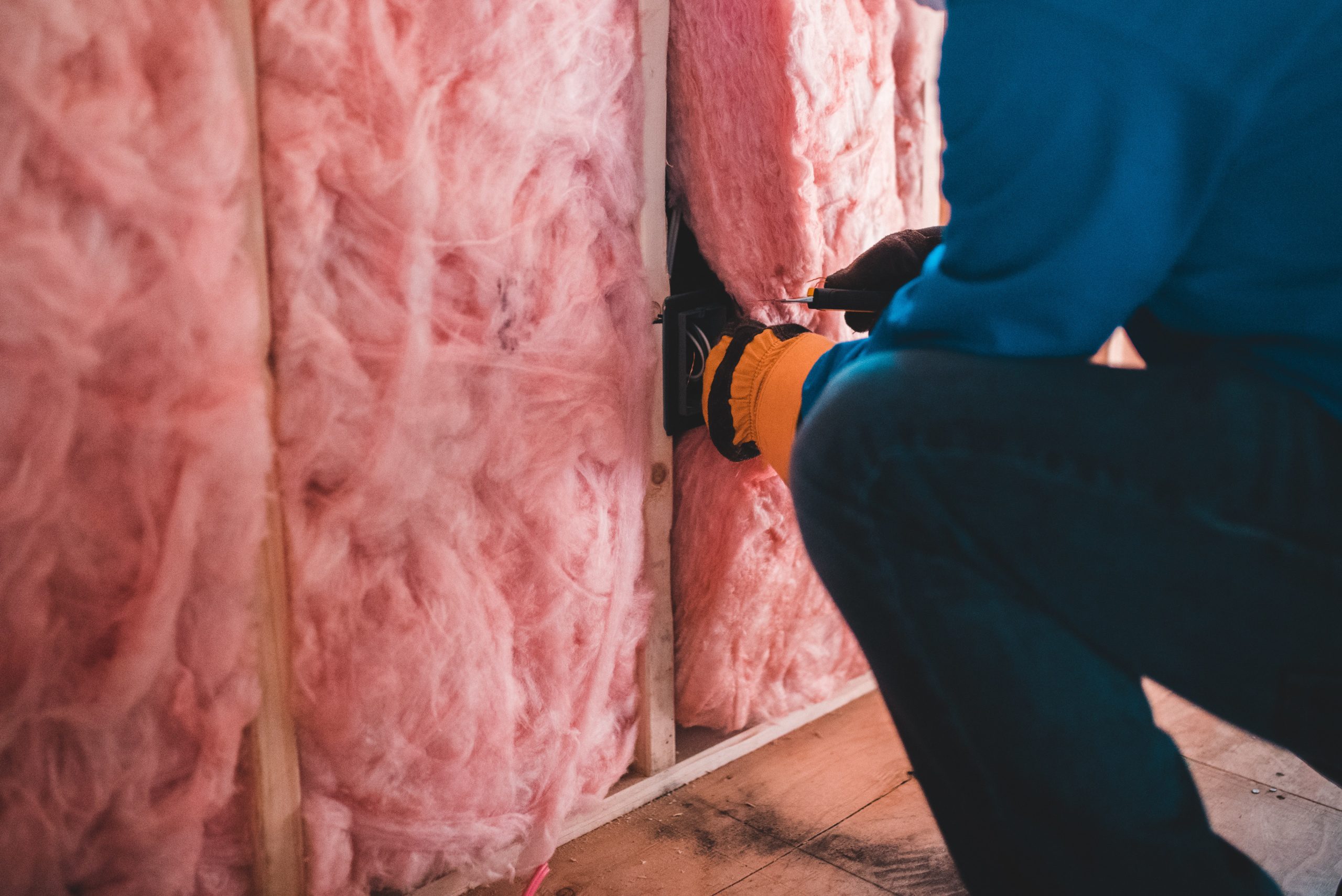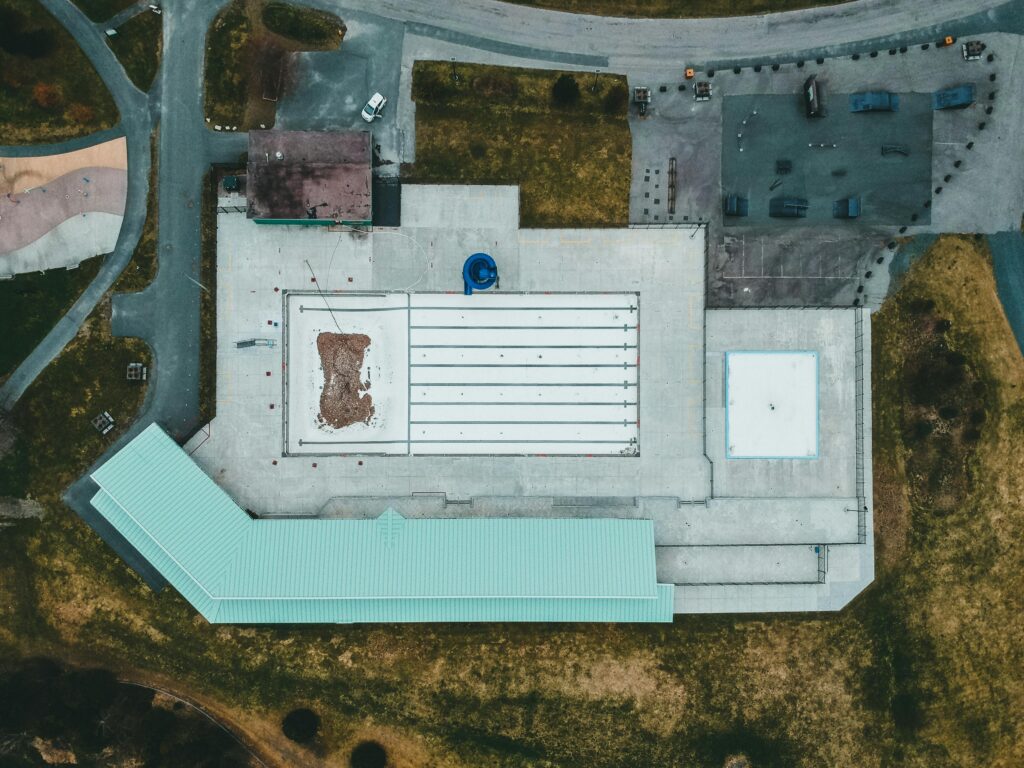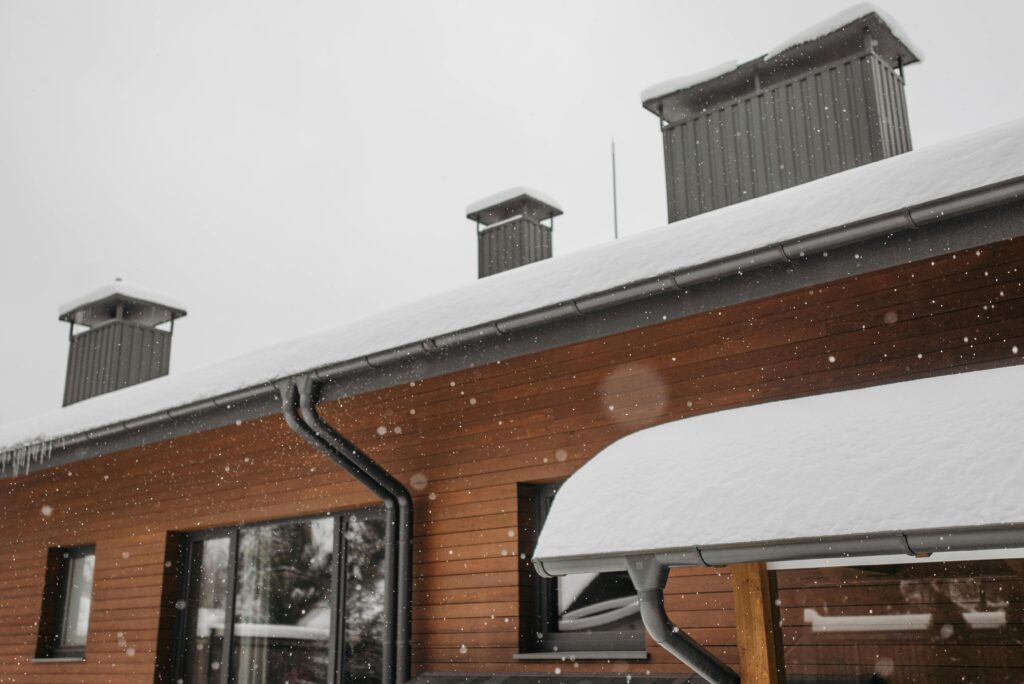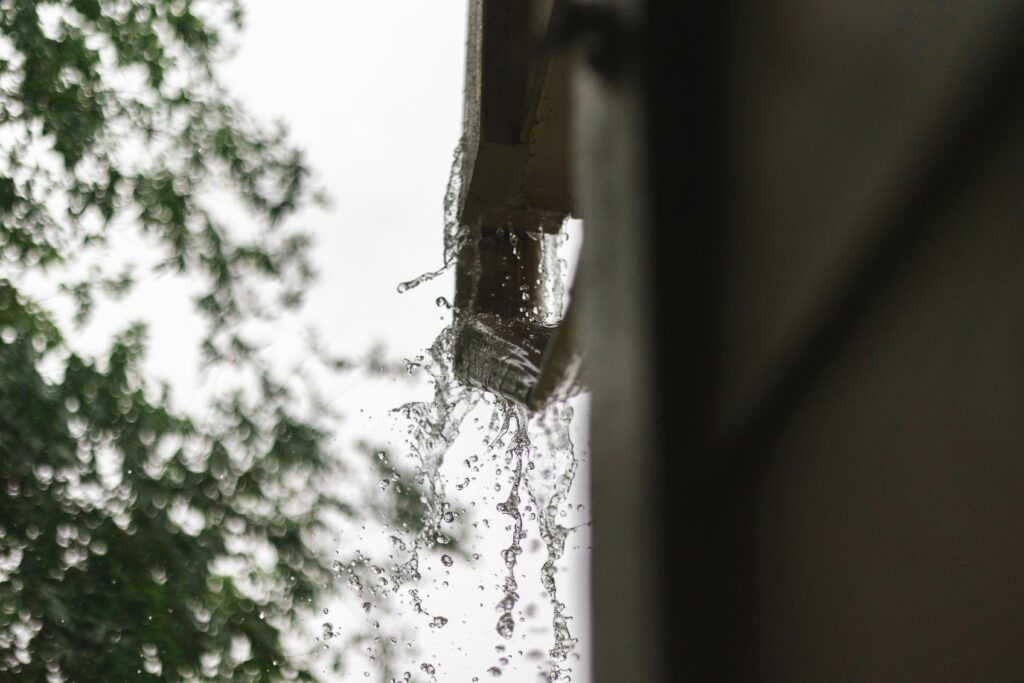As with a traditional roof, a commercial roofing system needs proper insulation to maximize energy efficiency and performance.
Commercial roofs are insulated with different materials depending on your budget, energy goals, and the type of roofing material you choose. Insulation effectiveness is measured by the R-value of a product. This refers to the density and thermal efficiency of the insulation material.
So what are the different types of commercial roof insulation you can consider? Here are the most popular options available today.
Polyisocyanurate Insulation
Polyisocyanurate insulation, sometimes referred to as Polyiso, is one of the most popular insulation materials for commercial roofing systems.
The material is designed for spray insulation but will harden after application. It’s applied between two sheets—the material of which can vary—to create a layer of insulation between the roof deck and the top of the roof.
Although Polyiso is an excellent choice for flat, single-ply roofing materials, it’s not ideal for roofs that experience significant foot traffic. Cover boards are necessary to protect the insulation layer when used for roofs with frequent foot traffic or asphalt-based roofing systems.
The R-value of Polyiso can vary widely from 2.9 to 26.8 depending on the specific brand and quality. This makes it one of the most thermally efficient flat roofing insulators.
High-Density Extruded Polystyrene (XPS)
High-density extruded polystyrene, also called XPS, is a more cost-effective roofing system and is ideal for protected membrane roofs. Protected membrane roofs are roofing systems in which the insulation is installed on top of the membrane, not beneath it.
XPS insulation has excellent durability. It’s ideal for green roofing systems with live plants and vegetation or those that need enhanced weather protection. However, XPS is not typically the right choice for asphalt-based roofing systems such as built-up roofing or modified bitumen.
The R-value of XPS insulation ranges from 5-5.5, depending on the product.
High-Density Expanded Polystyrene (EPS)
High-density expanded polystyrene, or EPS, is a versatile roofing insulation material that is less dense than XPS. It is more lightweight and easier to install. Although it doesn’t have as high of an R-value as XPS insulation, it is a more stable and environmentally friendly material.
It can be used for single-ply membranes as well as systems that are mechanically fastened. However, it’s not the right choice for heat-applied roofing systems. EPS provides some moisture resistance, but should not be exposed to water.
The R-value of EPS ranges from about 4-4.5.
Other Available Roof Insulation Materials
There are other commercial roofing insulation materials that aren’t as commonly used today but are still available. Fiberglass, while not the right choice for single-ply materials, can be used in metal or asphalt-based systems. It provides fire, mold, and chemical resistance with an R-value of about 3.6-4.2.
Perlite board is another less commonly used insulation material that will need a protective coating as it can deteriorate when wet. It’s typically mixed with other materials such as wood or paper. Perlite board provides a more natural insulation material, but it has a lower R-value of about 2.7.
Choosing the Right Commercial Roof Insulation
Roofing insulation doesn’t just impact your building’s energy efficiency—it can improve the performance and longevity of your roofing system. Choose the best roofing insulation for your particular structure and roofing material by booking a consultation with the professional commercial roofers at CDS Roofing today.



